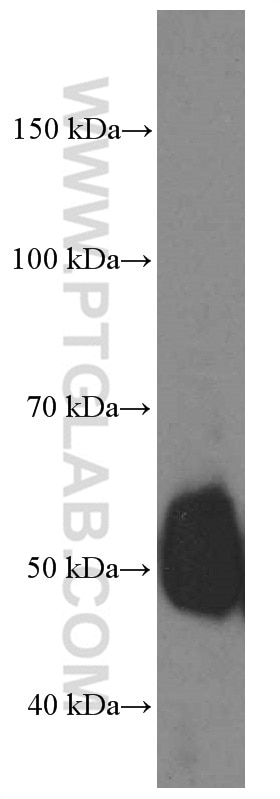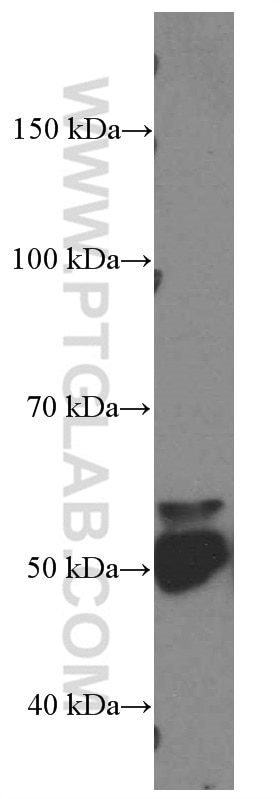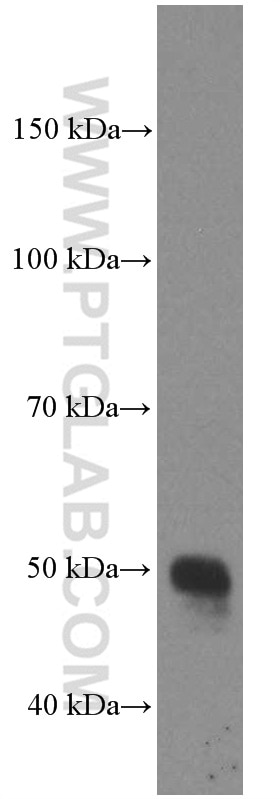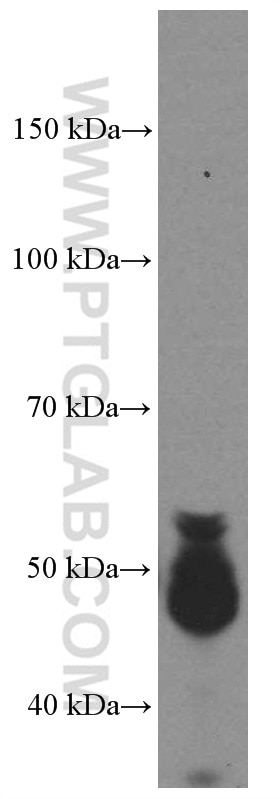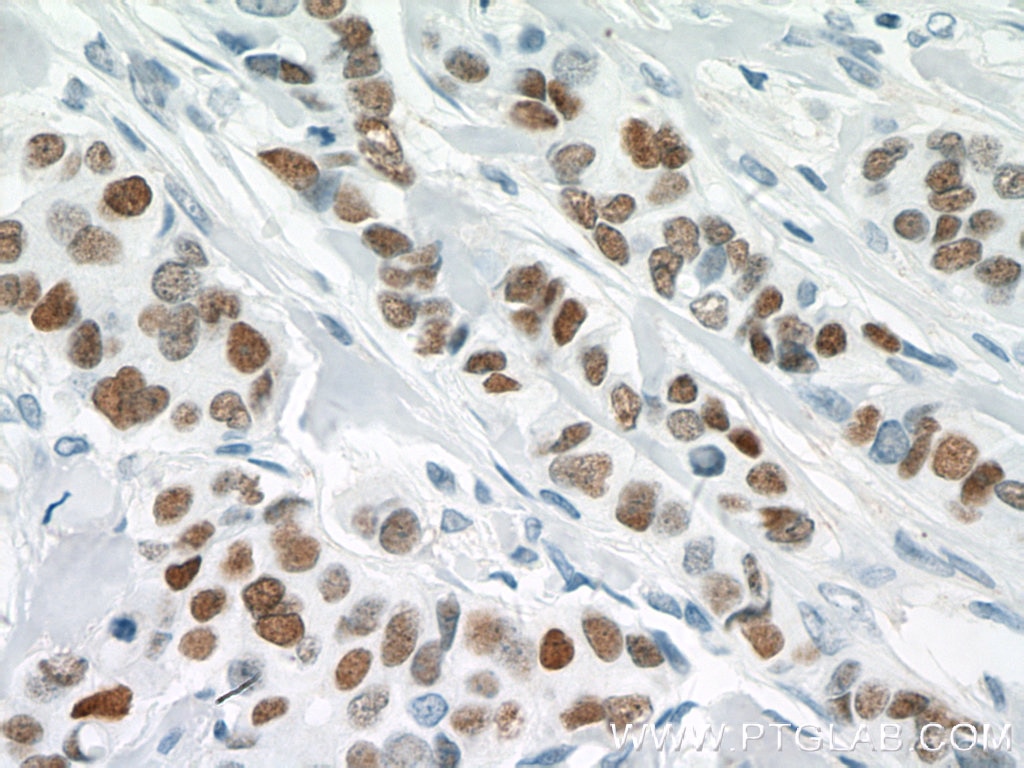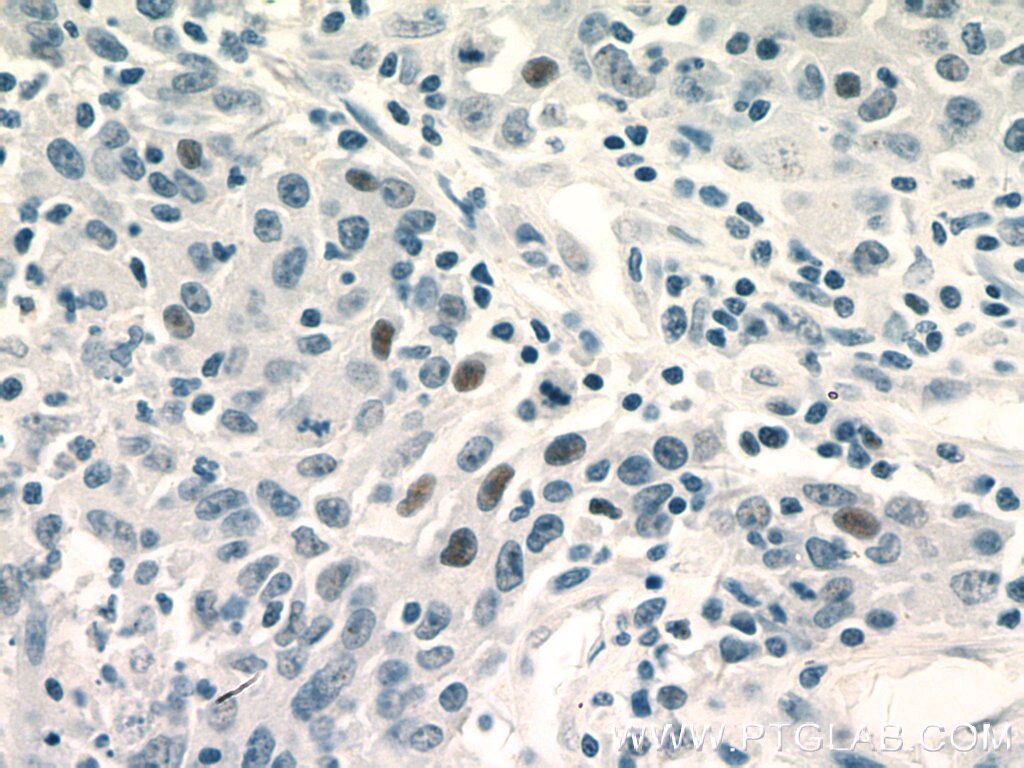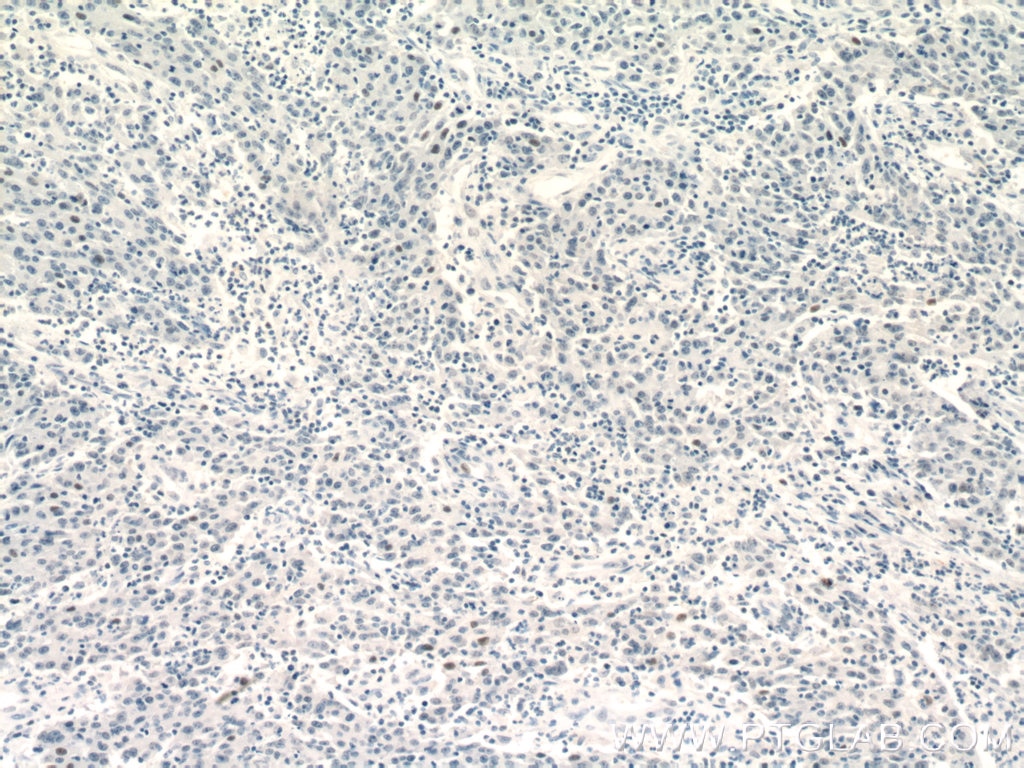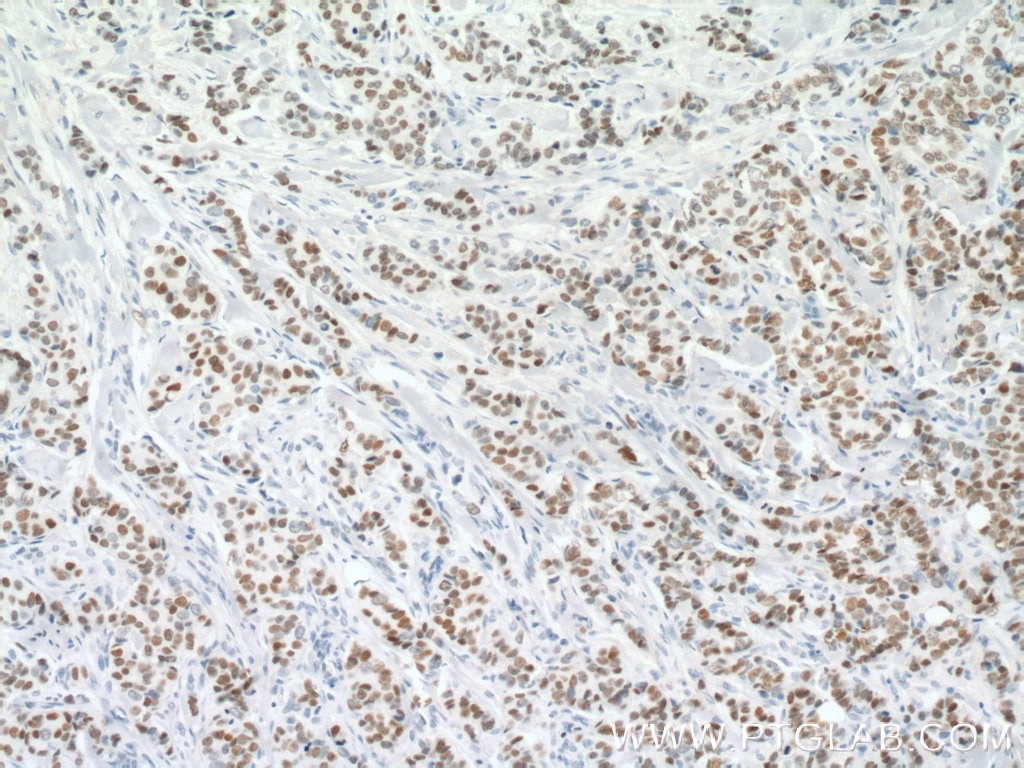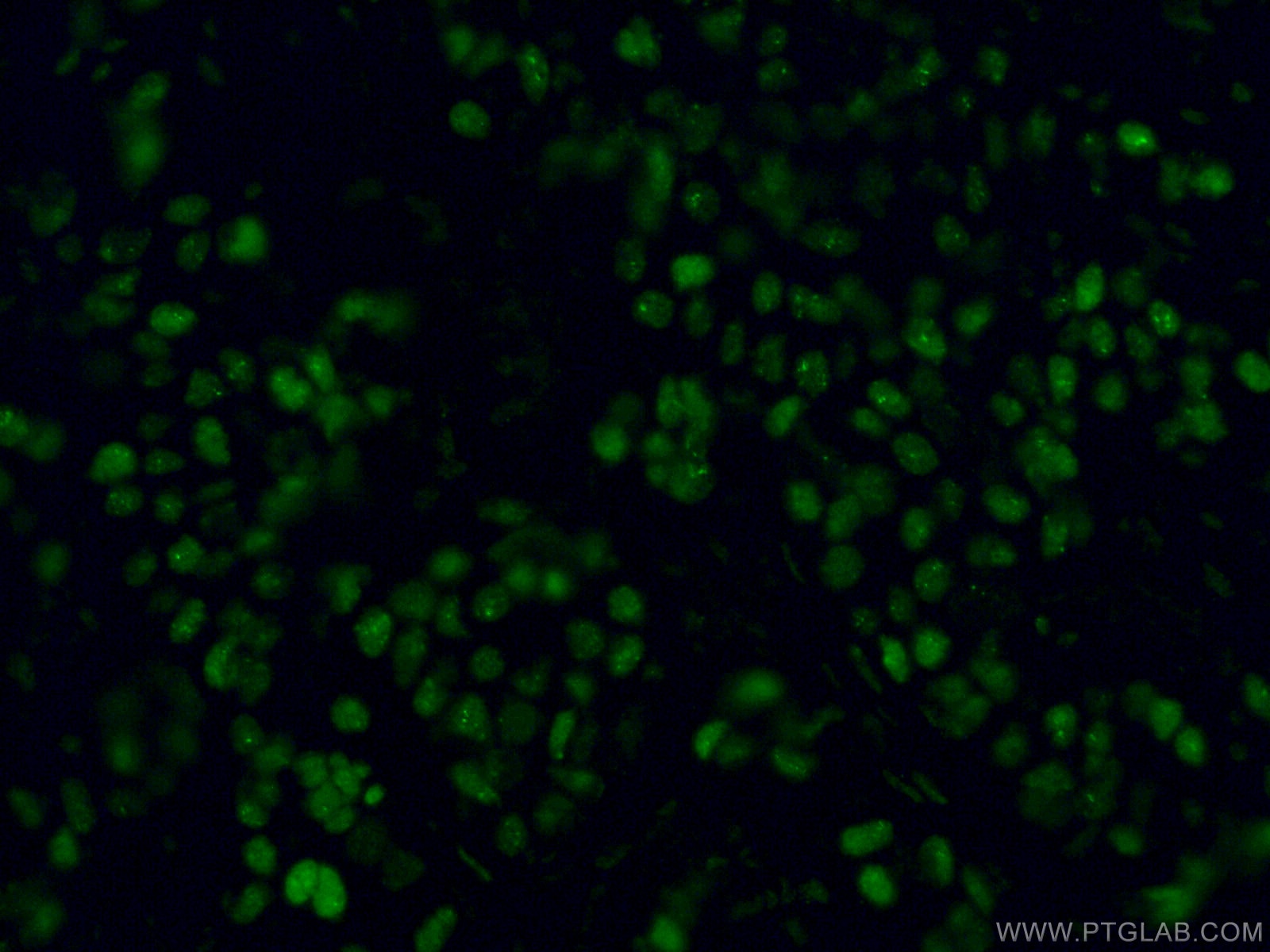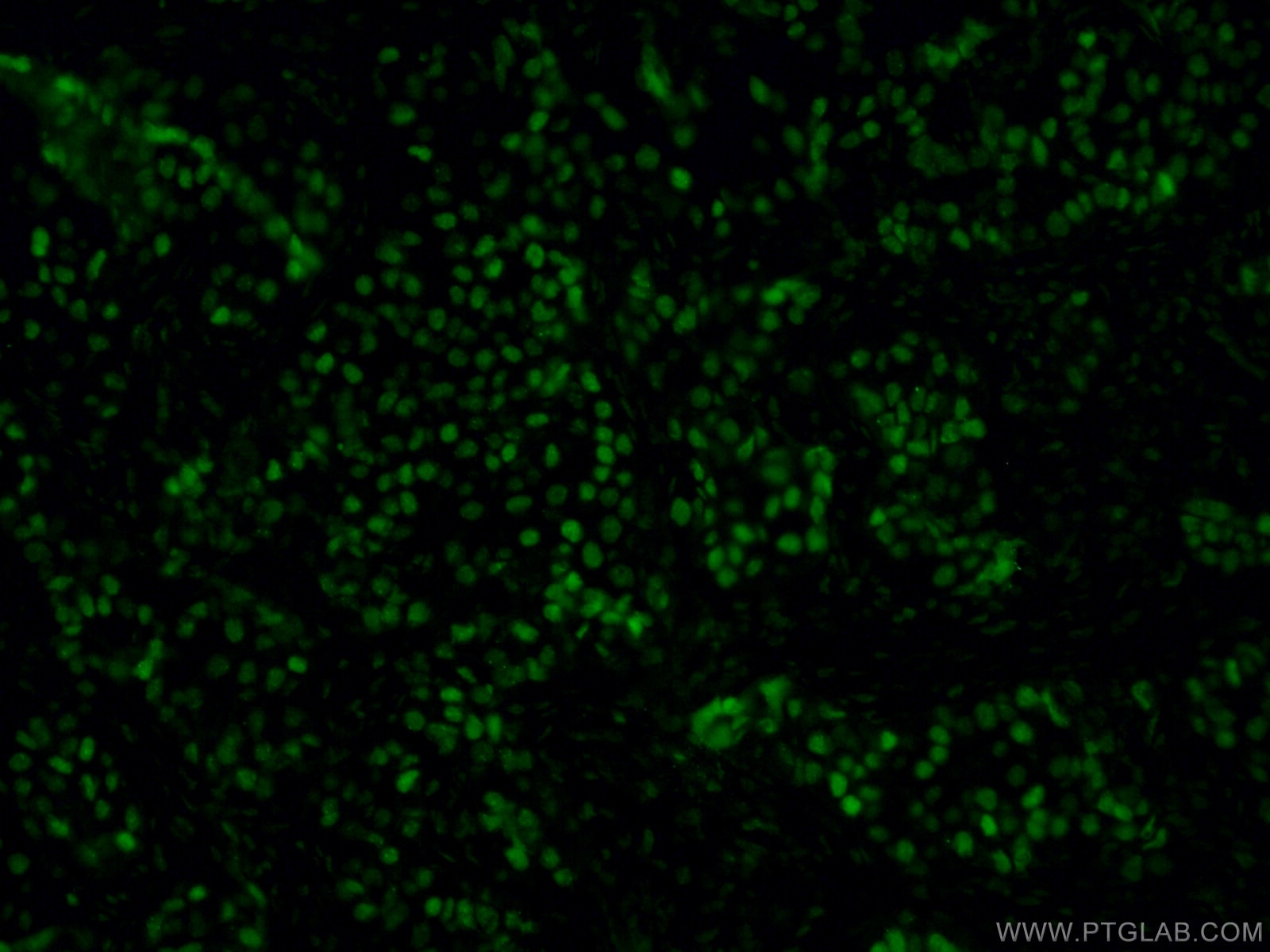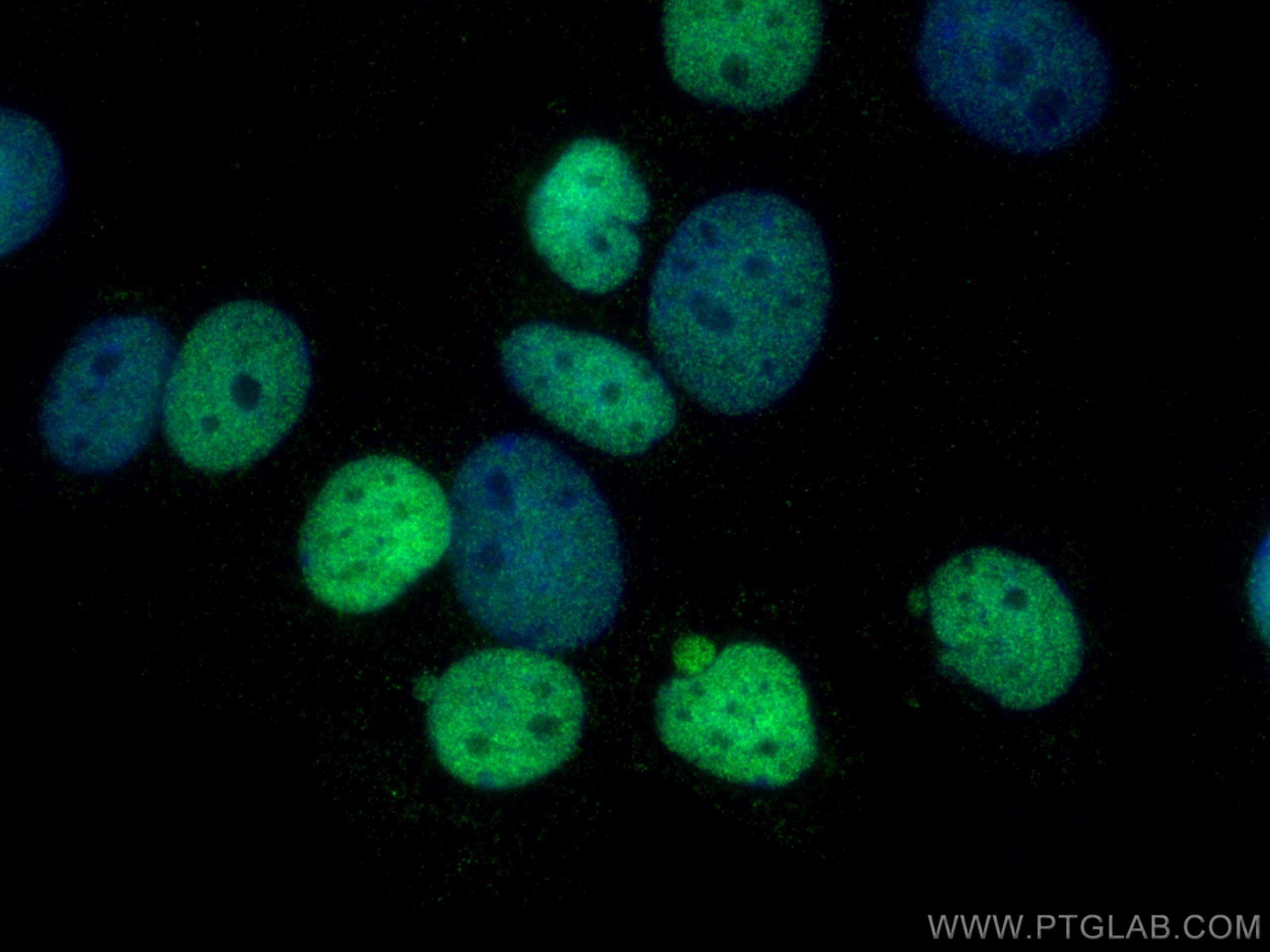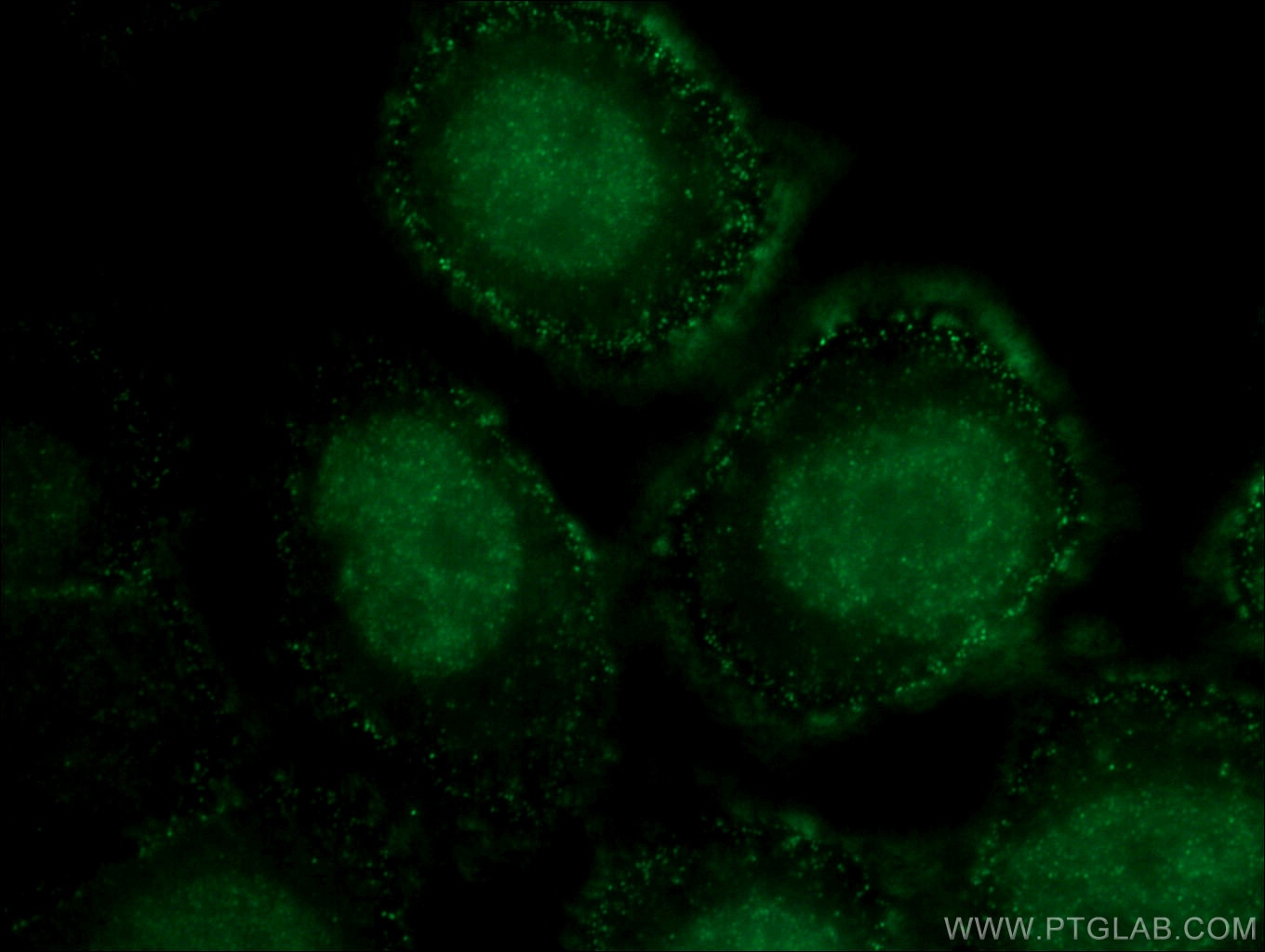GATA3 Monoklonaler Antikörper
GATA3 Monoklonal Antikörper für WB, IHC, IF/ICC, IF-P, ELISA
Wirt / Isotyp
Maus / IgG2a
Getestete Reaktivität
human, Maus und mehr (2)
Anwendung
WB, IHC, IF/ICC, IF-P, CoIP, ELISA
Konjugation
Unkonjugiert
CloneNo.
1B11A8
Kat-Nr. : 66400-1-Ig
Synonyme
Geprüfte Anwendungen
| Erfolgreiche Detektion in WB | MCF-7-Zellen, HeLa-Zellen, Jurkat-Zellen, RAW 264.7-Zellen |
| Erfolgreiche Detektion in IHC | humanes Mammakarzinomgewebe, humanes Kolonkarzinomgewebe Hinweis: Antigendemaskierung mit TE-Puffer pH 9,0 empfohlen. (*) Wahlweise kann die Antigendemaskierung auch mit Citratpuffer pH 6,0 erfolgen. |
| Erfolgreiche Detektion in IF-P | humanes Mammakarzinomgewebe |
| Erfolgreiche Detektion in IF/ICC | MCF-7-Zellen, HepG2-Zellen |
Empfohlene Verdünnung
| Anwendung | Verdünnung |
|---|---|
| Western Blot (WB) | WB : 1:1000-1:6000 |
| Immunhistochemie (IHC) | IHC : 1:50-1:500 |
| Immunfluoreszenz (IF)-P | IF-P : 1:50-1:500 |
| Immunfluoreszenz (IF)/ICC | IF/ICC : 1:400-1:1600 |
| It is recommended that this reagent should be titrated in each testing system to obtain optimal results. | |
| Sample-dependent, check data in validation data gallery | |
Veröffentlichte Anwendungen
| WB | See 13 publications below |
| IHC | See 2 publications below |
| IF | See 5 publications below |
| CoIP | See 1 publications below |
Produktinformation
66400-1-Ig bindet in WB, IHC, IF/ICC, IF-P, CoIP, ELISA GATA3 und zeigt Reaktivität mit human, Maus
| Getestete Reaktivität | human, Maus |
| In Publikationen genannte Reaktivität | human, Hausschwein, Maus, Ratte |
| Wirt / Isotyp | Maus / IgG2a |
| Klonalität | Monoklonal |
| Typ | Antikörper |
| Immunogen | GATA3 fusion protein Ag0174 |
| Vollständiger Name | GATA binding protein 3 |
| Berechnetes Molekulargewicht | 443 aa, 48 kDa |
| Beobachtetes Molekulargewicht | 50 kDa |
| GenBank-Zugangsnummer | BC003070 |
| Gene symbol | GATA3 |
| Gene ID (NCBI) | 2625 |
| Konjugation | Unkonjugiert |
| Form | Liquid |
| Reinigungsmethode | Protein-A-Reinigung |
| Lagerungspuffer | PBS with 0.02% sodium azide and 50% glycerol |
| Lagerungsbedingungen | Bei -20°C lagern. Nach dem Versand ein Jahr lang stabil Aliquotieren ist bei -20oC Lagerung nicht notwendig. 20ul Größen enthalten 0,1% BSA. |
Hintergrundinformationen
GATA3 is a transcriptional factor that binds to the enhancer elements of all 4 T-cell antigen receptor genes. GATA3 is highly expressed in naive, freshly activated cells and Th2 lineage cells and thought to be necessary and sufficient for Th2 cytokine gene expression. GATA3 and TBET interfer with each other to regulate gene expression.
Protokolle
| PRODUKTSPEZIFISCHE PROTOKOLLE | |
|---|---|
| WB protocol for GATA3 antibody 66400-1-Ig | Protokoll herunterladen |
| IHC protocol for GATA3 antibody 66400-1-Ig | Protokoll herunterladenl |
| IF protocol for GATA3 antibody 66400-1-Ig | Protokoll herunterladen |
| STANDARD-PROTOKOLLE | |
|---|---|
| Klicken Sie hier, um unsere Standardprotokolle anzuzeigen |
Publikationen
| Species | Application | Title |
|---|---|---|
Drug Resist Updat GATA3 mediates doxorubicin resistance by inhibiting CYB5R2-catalyzed iron reduction in breast cancer cells | ||
Cardiovasc Diabetol BAG3 promotes proliferation and migration of arterial smooth muscle cells by regulating STAT3 phosphorylation in diabetic vascular remodeling | ||
J Ethnopharmacol Therapeutic effects and mechanisms study of Hanchuan Zupa Granule in a Guinea pig model of cough variant asthma. | ||
Pharm Biol Modified BuShenYiQi formula alleviates experimental allergic asthma in mice by negative regulation of type 2 innate lymphoid cells and CD4 + type 9 helper T cells and the VIP-VPAC2 signalling pathway | ||
Int Arch Allergy Immunol Lack of WDFY4 Aggravates Ovalbumin-Induced Asthma via Enhanced Th2 Cell Differentiation. | ||
Evid Based Complement Alternat Med Astragali Radix-Coptis Rhizoma Herb Pair Attenuates Atherosclerosis in ApoE-/- Mice by Regulating the M1/M2 and Th1/Th2 Immune Balance and Activating the STAT6 Signaling Pathway. |
Rezensionen
The reviews below have been submitted by verified Proteintech customers who received an incentive for providing their feedback.
FH Renan (Verified Customer) (08-18-2022) | The fluorescence staining was noticeable, but the intensity was not so high, after using a tyramide signal amplification (TSA) protocol. The picture shows a lung lymphoid follicle, part of a 4-um FFPE tissue section. Heat-induced antigen retrieval was done with TRIS-EDTA buffer (pH 9.0) and GATA-3 was stained using a tyramide-conjugated Alexa Fluor 488 dye. CD3 is stained in yellow.
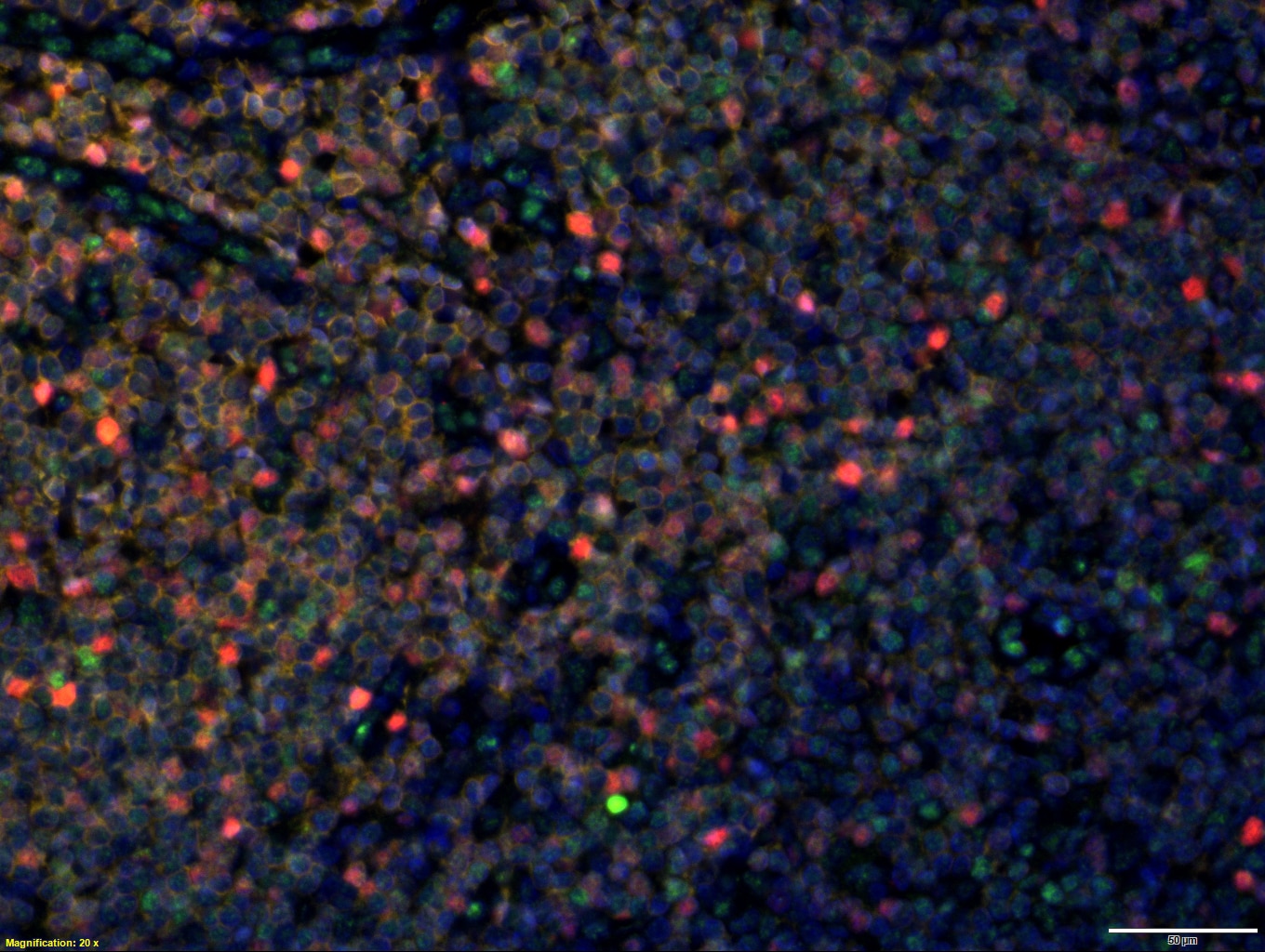 |
